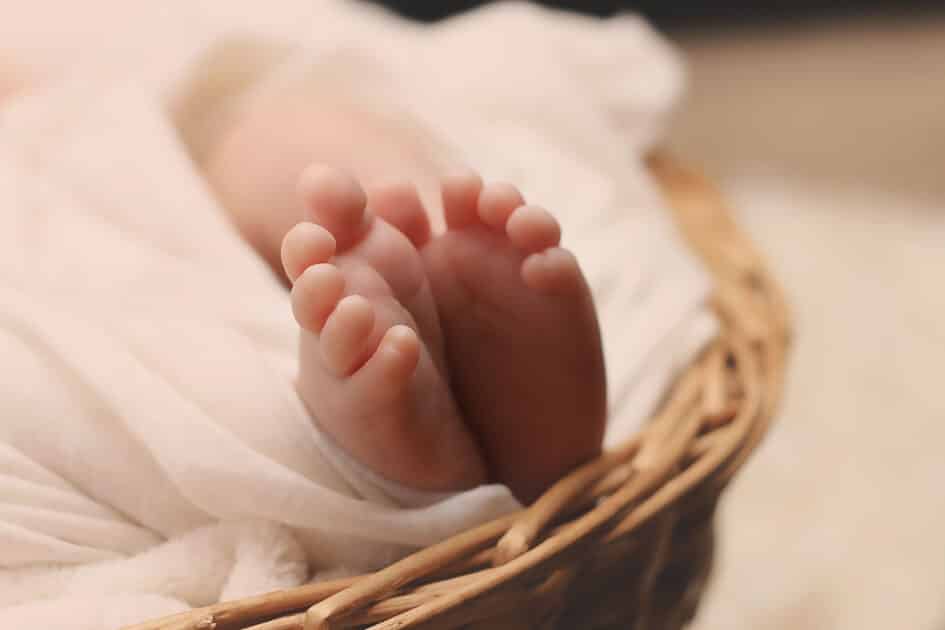
Now, for the question we’ve been waiting for: can Congress ban abortion altogether? I think under Congress’s Fourteenth Amendment power to enforce the Equal Protection Clause, the answer is yes. The Fourteenth Amendment provides that no state shall deprive any person within its jurisdiction of the equal protection of the laws. If unborn children are people, then the Equal Protection Clause applies. That means the states can’t protect everyone from murder except the unborn.
This begs the question that conservatives are afraid to touch: do the courts or the legislatures decide whether an unborn child is a person? In my view, this is a bad question. Neither courts nor legislatures get to decide who is a person. That matter has already been decided by man’s Creator, who made all people, born and unborn, in His image. Our very own Declaration of Independence states that God gave people rights before government ever came along, one of which is the right to life. Thus, it should not be surprising that God-given rights, including the right to personhood, should play some role in the analysis. This is especially true when it comes to the Fourteenth Amendment, because its framers intended to take the principles of God-given rights stated in our Declaration of Independence to their logical conclusion. Thus, if God already decided that unborn children are people, then they are entitled to the equal protection of the laws. Both the judicial and legislative branches are duty-bound to protect that right.
There are dangers in subjecting the personhood of a human being to either a vote by the legislature or a decision by the judiciary. There are certain unalienable rights that are not subject to the opinions of men, whether they are legislators or judges. The right to life is such a right. God already decided that unborn children are people, and therefore the Equal Protection Clause applies to them.
Because it took this much work to get the judiciary to simply admit that the Constitution does not protect a right to abortion, it would take a lot of work to get it to take the next step to recognize (not decide, but recognize) that unborn children are people. Fortunately, the possibility exists. One of the major points of ACLL’s amicus brief in Dobbs was to ask the Court not to foreclose the possibility of this argument in the future, and thank God, the Court agreed.
However, Justice Kavanaugh disappointingly said in his concurrence that he did not think unborn children were “people” within the meaning of the Amendment. Thus, while Thomas, Alito, Gorsuch, and Barrett may be open to hearing the argument, Justice Kavanaugh is not. That means on this Court, the fifth vote has to be Chief Justice Roberts. Ugh.
As a side note, this is also a reminder that elections have consequences. The reason Donald Trump nominated Brett Kavanaugh instead of a stronger candidate to fill Anthony Kennedy’s seat was because Alabama reduced the Republican lead in the Senate from 52-48 to 51-49 when it sent Doug Jones to Washington. While Republicans still had a majority, that majority included two pro-abortion senators. Thus, Donald Trump had to find a candidate that could get past them. But if we had sent Roy Moore to Washington instead of Doug Jones, then we may have had five conservatives who would be willing to consider the equal protection argument. Now we just have four conservatives and Roberts.
Thus, as a practical matter, I think we’re another generation of conservative justices away from getting the Court to hold that unborn children are people. However, this does not mean we should sit idly. If a shot comes to make the case to the Court, we should take it. The time is always right to stick up for the lives of innocent people, regardless of whether you have the votes or not. Just as Cato persistently reminded the Roman Senate that Cartage must be destroyed, so we must be persistent in reminding the Court that abortion must be destroyed.
We can also get started on getting lower courts to recognize the personhood of the unborn. The Alabama Supreme Court, for instance, acknowledged in Ex parte Phillips in 2018 that this could be true. The court as a whole has held that unborn children are people made in the image of God, although it has not yet applied that principle to the issue of equal protection for the unborn. But two of its Chief Justices, Tom Parker and Roy Moore, have both argued that the Equal Protection Clause prohibits abortions. Thus, Alabama would be a good jurisdiction to start as we try to get lower courts to recognize the personhood of the unborn.
If enough lower courts catch on, then it could sway the Justices to step in and agree. My friend and colleague Josh Craddock wrote an article in The Harvard Journal of Law and Public Policy a few years ago making this case, and the conservatives on the federal appellate courts would be likely to consider it.
Enabling legislation from Congress could also help. The Court would be more likely to address this issue if the People’s representatives have already taken the first step. Such legislation might not only be helpful but also necessary, depending on how the Court would interpret existing federal law. Without it, the courts might run into a problem of standing when they consider who would sue on behalf of unborn children. That’s all the more reason to push for a national pro-life law, especially the next time we have Congress and the White House.
Thus, we need to keep up the fight for life at all costs. We should give thanks to God that we now have the freedom to fight for life through the democratic process, but we need to continue fighting for the right to life until it is secured once and for all.
